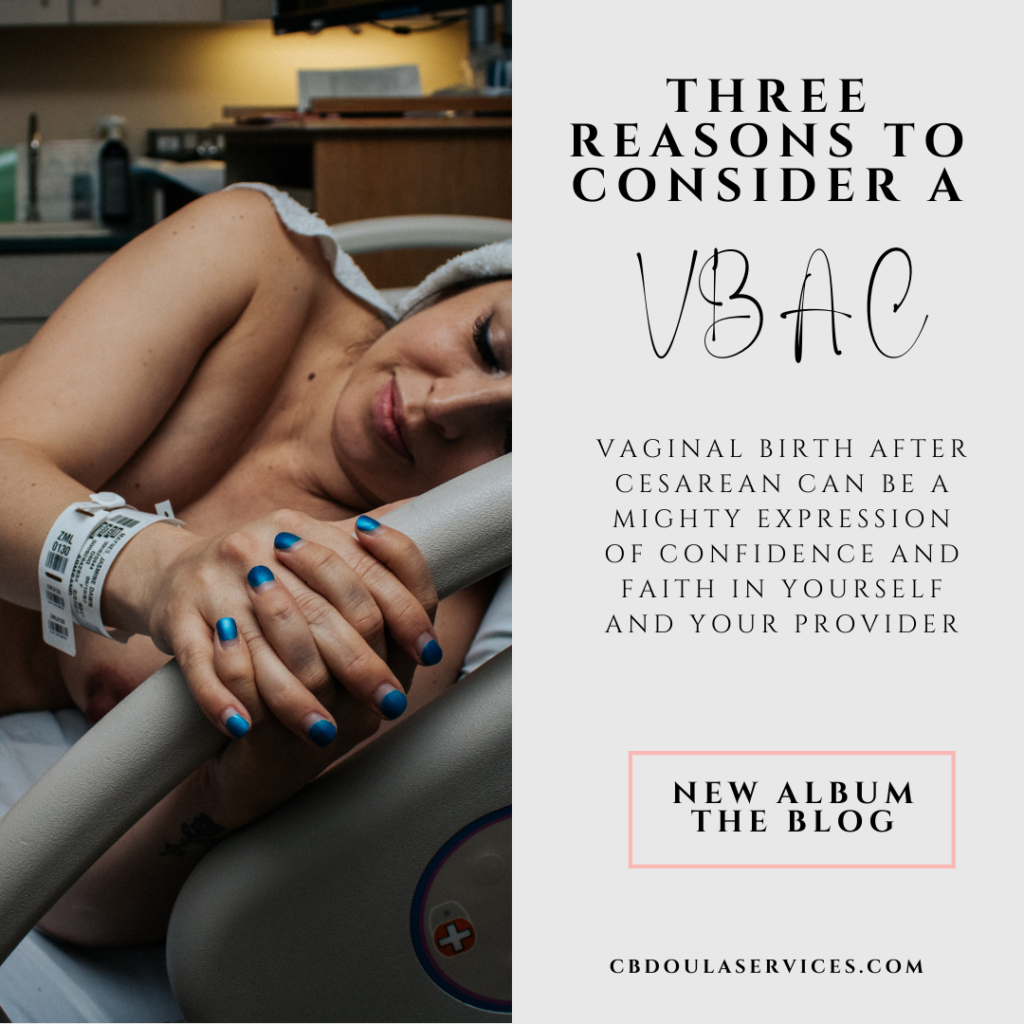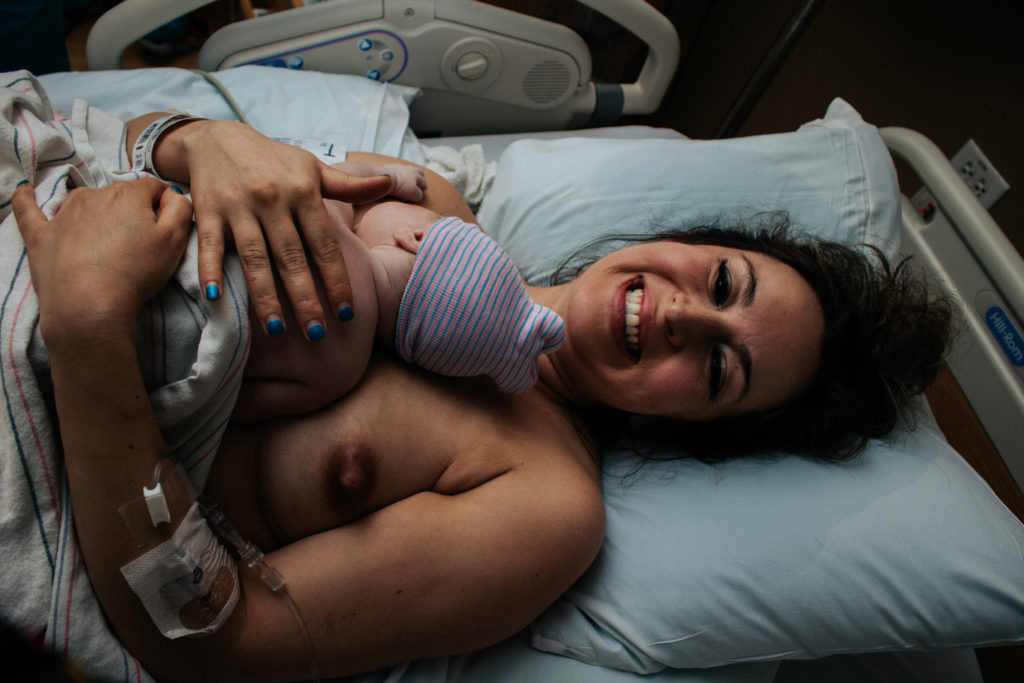Three Reasons to Consider a VBAC

VBAC also known as “vaginal birth after cesarean” can be a mighty expression of confidence and faith in yourself and your provider. In this post, we will explore three reasons why mothers and birthing families consider the VBAC experience, and some of the evidence-based facts and stats you should know.

Why do women consider having a VBAC?
Throughout time, women and mothers have had access to birth stories. Good ones, the ones with adverse outcomes, and the stories of everything in between. The more women hear about positive VBAC birth experiences, the more likely you/they will be to choose this path. Additionally, there are several common reasons mothers seek a VBAC birth. Here are three:
- One common reason for choosing a trial of labor after cesarean birth includes the impact another cesarean birth can have on future pregnancies. According to Mayo Clinic, if you’re planning to have more children, a VBAC might help you avoid the risks of multiple cesarean deliveries, such as placenta previa or placenta accreta.
- VBAC’s also lower the risk associated with surgical complications. With older siblings to tend to in the postpartum, often mothers are concerned about how they’ll care for their family. Though we recommend rest and a wide postpartum support net with every birth outcome, extra extra rest is needed to heal after surgical birth.
- Choice and bodily autonomy are another reason women and families choose the VBAC path. It’s one we can’t highlight nearly enough! When women feel heard in their medical care, the outcomes are better. One in five women say they have felt that a health care provider has ignored or dismissed their symptoms, and 17% say they feel they have been treated differently because of their gender—compared with 14% and 6% of men, respectively. (1)

“VBAC’s are powerful for the entire family. Witnessing this dad love on the mother of his babies was so sweet. He was blown away watching her step into her power, we all were! It was such a joy being your doula @jasminefindingthebalance and Robbie! Thank you.”
@cherryblossomdoulamegan
Are there risks associated with repeat caesarean birth?
Yes. For most women, cesarean birth carries greater risk than a vaginal delivery. “Repeat cesarean birth significantly increases the risk of complications such as of infection, injury to adjacent organs, abnormal implantation of the placenta, and placenta previa, in which the placenta completely or partially covers the cervix.” (2)
Note: In certain circumstances, repeat cesarean is absolutely the right choice for a mother. Resources we love to support you in your personal decision process include VBAC Academy & ICAN.
Who do I talk to about my birth preferences?
We suggest talking to your midwife or obstetrician in making the decision to move forward with or avoid VBAC. We also recommend a second opinion when needed! Your birth doula should be informed in navigating this process.
A great question to ask a potential labor doula in your interview process is, “what is your experience in supporting VBAC?” If s/he has not supported a vaginal birth after cesarean in the past, it is important to make sure she has received training and/or is under supervision from another doula to be your very best guide.
What support do I need for a VBAC?
A supportive, encouraging, positive, and honest provider is essential for a vaginal birth after cesarean journey. The way that you experience your pregnancy makes a difference on your birth outcome! Additionally, a supportive birth team will make for a much more easeful (and joyful!) journey toward birth. Explain to your partner, family members and friends what your goal is in having a VBAC and why. When needed, you may want to cite clinical studies – as your loved ones may experience their own fears around a VBAC (most of the time, because they love you!).
See our notes above on VBAC Academy & ICAN for evidence-based information to help your supports support you.
Does a Doula make a difference in my VBAC?
As Doulas, we want you to know that your journey is your journey. When it’s tough to find someone to support you without judgement, we’ve got your back. And, even if you do have the right people saying the right things throughout your pregnancy – numerous clinical studies have found that continuous support during labor means women have shorter labors, fewer complications, and fewer cesareans. Research shows that all women should be allowed and encouraged to have continuous support during labor. The American College of Obstetrics and Gynecologists and the Society of Maternal-Fetal Medicine state, “one of the most effective tools to improve labor and delivery outcomes is the continuous presence of support personnel, such as a doula.” (3)
Here at Cherry Blossom Doula Services, LLC it is an honor to provide you with Certified VBAC Pro’s and doulas well-versed in vaginal birth after cesarean.




Ask us about support for your VBAC today.
Your Cherry Blossom Doulas
Photography in this post is by Doula Megan Straub.
(1) Recognizing, Addressing Unintended Gender Bias in Patient Care
(2) “Who is a Good Candidate for VBAC?”
(3) Safe Prevention of the Primary Cesarean Delivery

Hi! I’m Alyssa Leon. I lead Cherry Blossom Doula Services, LLC – an inclusive birth + postpartum doula team in Arizona; and mentor doulas in Arizona and beyond.